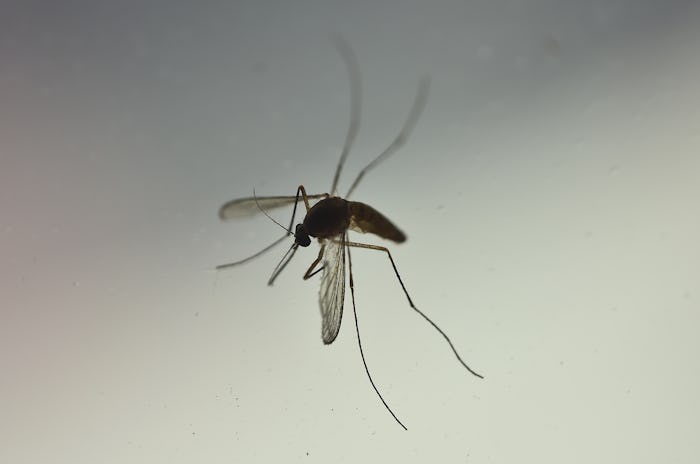Life

Zika Symptoms During Pregnancy Are Easy To Detect, If You're Symptomatic
With news of Zika virus spreading across the United States, women who are pregnant — or planning on it — have been growing worried. While Zika is relatively harmless to most people infected with it, it can do serious damage to unborn fetuses, causing microcephaly and other neurological disorders. Some expecting mothers are wondering whether there are Zika symptoms during pregnancy that they should be looking out for, especially if they live in a Zika-afflicted area or have recently traveled to one.
On the bright side, Zika symptoms are fairly easy to spot, and they're no different for pregnant women than they are for the rest of the population. According to the Centers for Disease Control, Zika symptoms include rash, fever, aching in joints, muscle pain, headaches, or conjunctivitis. Symptoms typically last a few days, but can remain up to a week. If pregnant women develop any Zika symptoms, they're encouraged to see their doctor as soon as possible.
Unfortunately, however, there's also bad news: Experts currently believe that only about 20 percent of those with Zika actually develop symptoms, meaning a full 80 percent of those who contract it might never know they actually have Zika — yet it can still affect fetuses.
So if you're pregnant but don't develop any Zika symptoms, what should you do? First and foremost, whether you live in a Zika-affected area or are visiting one, make sure you protect yourself against mosquito bites throughout your pregnancy (the number one recommendation for avoiding Zika at the moment, considering there is no vaccine or treatment for the virus). Aside from that, the CDC has recommendations to follow depending on your situation.
For pregnant women who have recently returned from vacation to a Zika-affected country, the CDC recommends testing pregnant women two to 12 weeks after they've returned using serologic testing (blood tests that measure certain antibodies). For those who live in Zika-affected areas, the CDC recommends serologic testing at the onset of prenatal care and halfway through the second trimester, since Zika proteins will still be present in the blood despite a lack of symptoms.
It's also important to note that if you previously tested negative for Zika virus, but have more recently developed symptoms, you should definitely get tested again, since you can contract the disease whenever. Pregnant women who do contract the virus should be monitored closely, with serial ultrasounds every three to four weeks, and should likely see a maternal-fetal medicine specialist.
If you live in an affected area, or you or your partner have travelled to one, make sure to keep an eye out for symptoms — but make sure you're also taking preventative measures and medically monitoring for any signs that could otherwise slip by undetected.